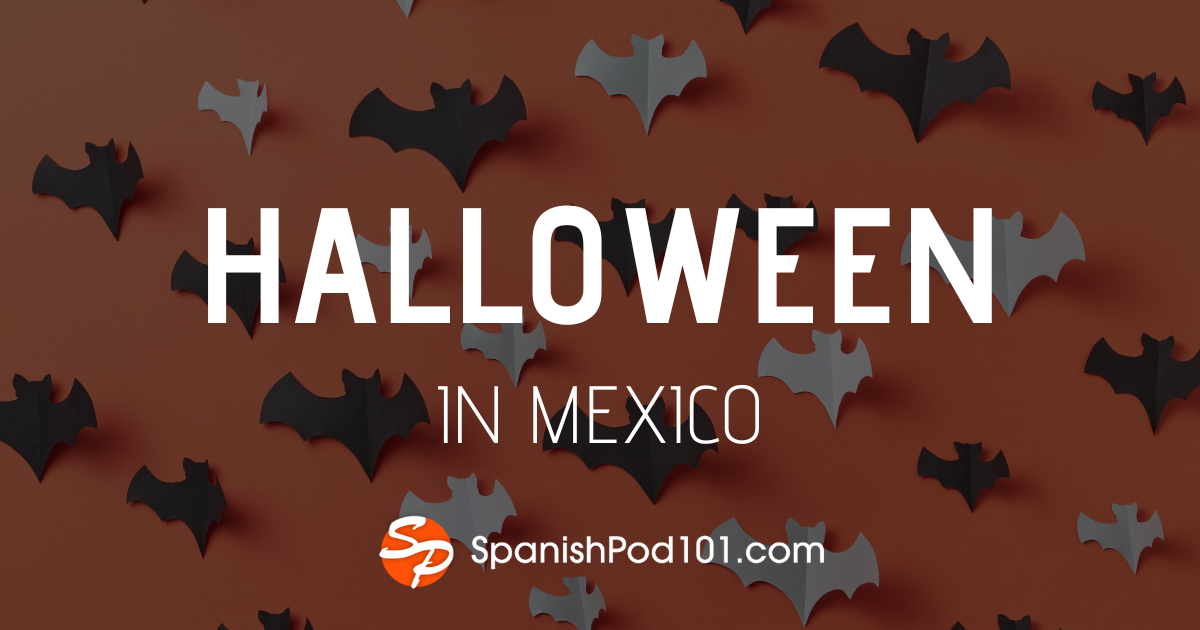Archive for the 'Spanish Culture' Category
August 28, 2015
Do you know what the Palacio Nacional is?
The National Palace, or Palacio Nacional, is the seat of the federal executive in Mexico. It has two towers and three main doorways, each leading to a different part of the building. The southern door is connected to the presidential offices, which is off-limits to the public. It is located on Plaza de la Constitución, the city's main square.
Sample Sentence:
Muchos eventos nacionales se llevan a cabo frente al Palacio Nacional.
(Many national events are held in front of the National palace.)
P.S. Get Your Daily Dose of Spanish with 1-Minute Mini-Lessons
The Daily Dose of Spanish is a Calendar that gives you new, 1-minute lessons every day. Why? Because learning a little every day is easy, strengthens your habits and... Show more
August 25, 2015
6 Reasons to Learn a Language Before You Travel
There are plenty of destinations where you can get by with English, but sometimes you want to do better than just ‘get by’. Here are 6 reasons you should learn the basics of the language of your next trip destination.
1. You will be able to discover your destination better than other tourists.
Getting by is one thing, but actually experiencing a trip abroad is quite another. No amount of guidebooks and online research can compensate for a basic lack of language ability. Speaking the language of your destination permits you to explore that destination beyond the regular tourist traps. Your language skills will not only allow you to dig into all the hidden gems of your destination, but they will also allow you to mingle with the... Show more
September 30, 2010
Top Five Phrases You Will Hear in a Classroom
Today's lesson will focus on the top five phrases you will hear in a classroom in the Spanish Language. If you don't know these already, they will be very useful to you.
Perdón, tengo una pregunta... ("Excuse me, I have a question...")
This is a common and polite way of getting someone's attention to ask a question, whether it's a
teacher, a friend, or a stranger.
Cómo se dice...(en español)? ("How do you say that (in Spanish)?")
Use this phrase to ask for the Spanish equivalent of an English word. Rather than asking in English,
"Hey, how do you say that?" asking in Spanish will earn you brownie points with your teacher. It will
also help keep your brain in Spanish-speaking mode.
¿Qué quiere decir? ("What does that mean?")
... Show more
September 23, 2010
Five Things Your Spanish Teacher Won’t Teach You
Today we are going to teach you commonly used phrases and/or words in Spanish a teacher would not teach you. Below are some examples!
The "Dude" Words
Many varieties of informal Spanish have a "dude" word that peppers their sentences. It's considered
very informal, and your Spanish teacher will not bother to address you in this way, but in informal
situations, you'll hear it all the time. Different countries have different words for this word.
The "Wow" Words
Here are several ways to express surprise in Spanish: hijole, andale, vaya, caray, jolín, and guao.
Pedo
If you look up el pedo in the dictionary, you'll find that its primary definition is "fart," so you can
understand why your teacher is not excited about teaching... Show more
September 16, 2010
Top Five Mistakes Not to Make When Using Spanish!
In this All About, you will find out the top 5 mistakes often made in the Spanish language. Knowing them will help you not to make them!
Mistake Number Five: Crimes against Gustar
Spanish people translate me gusta and me gustan as "I like," and if you like something singular you say me gusta, and if you like something plural you say me gustan. Gustar is a verb that actually means "it gives me pleasure" so if you conjugate it like other regular verbs, you might be saying something wrong.
Mistake Number Four: -r Fixation
One big mistake people make when learning Spanish is fixating on the -r. The trilled -r intimidates some people so much that they decide they can't learn Spanish; others try to trill every -r they see, which... Show more
September 9, 2010
Top Five Tools to Learn Spanish
Featured today in this lesson, we will supply you with a few five great tools to learn how to speak Spanish! Keep these tools under your belt and it'll make your learning experience smoother and easier.
Tool Number One: A Spanish Dictionary
Bilingual dictionaries used to be a burden to the language student; it used to be that only the larger-sized dictionaries were complete enough to be useful, but these large-format dictionaries were difficult to carry around. Nowadays, web-based dictionaries are the standard; they are complete enough to help you with your composition assignments, faster than paperbound dictionaries, and available in any web browser or smartphone.
Tool Number Two: A Verb Conjugator
A verb conjugating... Show more
September 2, 2010
All About Latin American Pop culture
As popular culture changes quickly and drastically, this lesson focuses on the most recent pop culture phenomena in the Spanish speaking countries.
Popular Music
The Spanish music scene at the moment is dominated by Reggaeton, a mix of hip-hop and reggae that developed mostly out of the music scenes of Puerto Rico, New York, and Miami. With that said, there has also been a steady growth of EMO and electronic bands in the Spanish-speaking countries, which has brought forth fashion styles and trends associated with this music genre: skinny jeans, converse shoes, snug shirts, and full-fledged black outfits.
Cinema
The revival of Spanish-speaking independent cinema has also propelled major production companies to produce more... Show more
August 26, 2010
Five Famous Festivals
This Spanish All About Lesson you will learn about five of the more famous festivals in Spain and Latin America.
Sanfermines-"The Running of the Bulls"
This ten-day municipal festival in Pamplona, Spain is well known in the English-speaking world as the
"running of the bulls." The festival commemorates Saint Fermin, a martyr and patron saint of the
participants, who dress in white with red scarves for the event.
Puente Guadalupe-Reyes - "Christmas Season"
Traditionally in the Spanish-speaking world, it is the Three Wise Men who mysteriously bring gifts to children on Epiphany, although some families also observe the Santa Claus tradition of gift giving on Christmas Day.
Semana Santa - "Holy Week"
Holy Week celebrations... Show more
May 21, 2010
Five Things You Should Know About Spanish Speaking Cultures
The Focus of This Lesson Is Five Things You Should Know about Spanish-speaking Cultures.
1. The Kiss and the Handshake
In the Spanish-speaking world, women are always greeted with a kiss, both as a hello and as a good-bye. Sometimes this kiss is a peck on the check, but many times, it's that kiss where you touch cheeks and kiss the air.
In general, you reach left for the first kiss; that is, it's your right cheek that gets kissed first.
Men usually greet each other with a handshake rather than a kiss, both as a hello and a good-bye.
2. La hora latina
It is a widely held belief that Spanish-speakers always arrive late to events, even among Spanish speakers themselves. People often refer to this as la hora latina,... Show more
May 13, 2010
Que Delicioso!
The cuisines of the Spanish-speaking world are as varied and diverse as they are delicious. If you haven't tried these delicious dishes, we recommend you do!
If you are a meat lover, you should try "churrasco", which in Latin America means "grilled meat", and Argentinians are known for their love of savory steaks.
If you want to try and exotic and comforting dish, venture into Puerto Rico's "mofongo," a delicious dish of fried plantains and pork rinds, vegetables, meat, or seafood.
Also on the exotic side, unique technique of curing seafood with citrus juice rather than heat, ceviche, is also very delicious invented in Peru and elevated to an art form.
And while it's difficult to pick one dish that represents the... Show more









